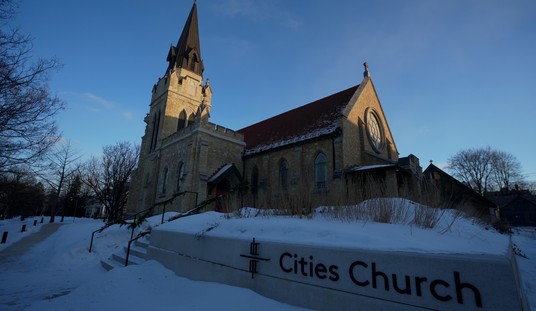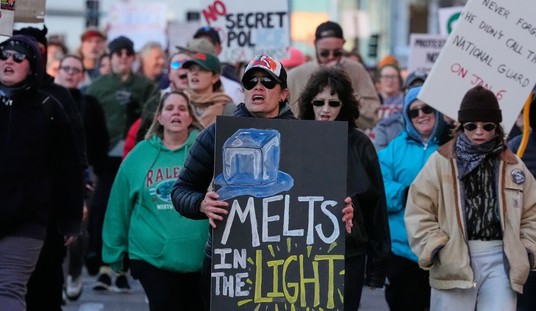There’s a really interesting and enlightening piece by National Review’s Kevin D. Williamson looking at some of the white working class, who live in small towns and happen to be Donald Trump supporters. Williamson is getting a ton of criticism for having the audacity to declare these communities need to disappear.
The truth about these dysfunctional, downscale communities is that they deserve to die. Economically, they are negative assets. Morally, they are indefensible. Forget all your cheap theatrical Bruce Springsteen crap. Forget your sanctimony about struggling Rust Belt factory towns and your conspiracy theories about the wily Orientals stealing our jobs. Forget your goddamned gypsum, and, if he has a problem with that, forget Ed Burke, too. The white American underclass is in thrall to a vicious, selfish culture whose main products are misery and used heroin needles. Donald Trump’s speeches make them feel good. So does OxyContin. What they need isn’t analgesics, literal or political. They need real opportunity, which means that they need real change, which means that they need U-Haul.
His comments have been used to portray National Review as a magazine which hates an entire sect of people. But those doing this are only focusing on one part of Williamson’s statement and not the entirety of the piece itself. Williamson seems to be more concerned with how the people who reside in communities like Gypsum, New York actually live. His message seems to be one of encouraging people to be personally responsible, and not depending on the government for help (emphasis mine).
One of the worst errors in public life is the common one of mistaking the metaphor for the thing itself. In reality — and reality is not optional — the president isn’t the national dad (Governor John Kasich’s insistence notwithstanding), and government is neither paternal nor maternal. The nation isn’t your family. Your family is your family.
The metaphor points both ways: Nationalism may speak to a longing for lost national greatness, but in our own time, it speaks at least as strongly to the longing after — the great howling lamentation for — the ideal family that never was lost, because it never was formed. The Mikes of the world may be struggling to make it in the global economy, but what they really are shut out of is the traditional family. The current social regime of illegitimacy, serial monogamy, abortion, and liberal divorce has rendered traditional families optional, at best — the great majority of divorces are initiated by wives, not by husbands — and the welfare state has at least in part supplanted the Mikes in their role as providers, assuming that they have the wherewithal to fill that role in the first place. Traditional avenues for achieving respect, status, and permanence are lost to them.
He actually makes a really good point here. People shouldn’t rely on the government to get themselves out of the muck they’re in. They should rely on themselves. Hillary Clinton was roundly criticized for her 1996 book It Takes a Village, but some of those who may have lobbed arrows at Clinton are now turning their arrows towards Williamson for being against what they claim to be against. Maybe it’s the fact Williamson has taken an anti-authoritarian stance and won’t support Donald Trump just because there’s an R next to his name. Maybe it’s because he’s a “roving correspondent,” whose has a William F. Buckley-type way with language. Maybe it’s the earrings and beard. Or maybe it’s because Williamson exposes the dark secrets of some of those who claim to be white working class in that their entire society is broken, but they won’t fix it.
If you spend time in hardscrabble, white upstate New York, or eastern Kentucky, or my own native West Texas, and you take an honest look at the welfare dependency, the drug and alcohol addiction, the family anarchy — which is to say, the whelping of human children with all the respect and wisdom of a stray dog — you will come to an awful realization. It wasn’t Beijing. It wasn’t even Washington, as bad as Washington can be. It wasn’t immigrants from Mexico, excessive and problematic as our current immigration levels are. It wasn’t any of that. Nothing happened to them. There wasn’t some awful disaster. There wasn’t a war or a famine or a plague or a foreign occupation. Even the economic changes of the past few decades do very little to explain the dysfunction and negligence — and the incomprehensible malice — of poor white America. So the gypsum business in Garbutt ain’t what it used to be. There is more to life in the 21st century than wallboard and cheap sentimentality about how the Man closed the factories down.
If there’s one criticism to be made on Williamson’s piece is the broad brush he paints those who might be considered “white working class.” If he’s suggesting every white person who lives in a small town fall into that category, then he’s sorely mistaken. I know plenty of people who live in small towns because they’re sick of the big city and would prefer to be left alone (a lot of these happen to be libertarians and aren’t looking towards the government for help). There are some people who are perfectly fine with their lifestyle and have no desire to pick up and move on. That’s their choice and I do not believe they should be forced to do something they don’t want to do (even if others think it might behoove them to).
The other criticism is the language of saying “these dysfunctional, downscale communities… deserve to die.” I realize the point Williamson is trying to make: he thinks those living in the “dysfunctional, downscale communities” are the cause of their own problems and their cycle needs to be broken. There are a lot of people who have the same feeling about minority communities in inner cities. In fact I have the sneaky suspicion if Williamson had focused on the inner city and Democrats, some of his biggest critics might be singing his praises. The question is, “How?” How do you convince people who are on the government dime to start doing their own work? Is it cutting off their benefits? Or is it convincing entrepreneurs to move into the area and start businesses, so people will move out? Would convincing activists to move into the area and start encouraging people to get out do something? Or is it cutting regulations, farm subsidies, and shrinking the size of government so prices go down? Or is it hoping enough people who are tired of the city and prefer a quieter life just move into the smaller towns, so the dysfunctional ones disappear? There may not be a simple answer to this, but at least Williamson is bringing up the problem so people can consider solutions.








Join the conversation as a VIP Member